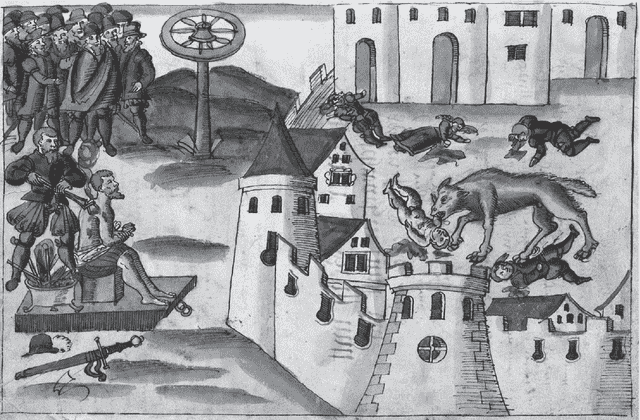The legend of the werewolf, a human who transforms into a wolf or a wolf-like creature, is one of the most enduring and widespread myths in folklore. The origins of the werewolf legend can be traced back through various cultures and historical periods.
1. Ancient Origins:
- The concept of shapeshifting humans with animal-like attributes dates back to ancient times. In Greek mythology, there’s the story of Lycaon, a king who was transformed into a wolf as punishment for his crimes. This is one of the earliest known werewolf tales.
2. European Folklore:
- The werewolf legend became particularly prominent in European folklore during the Middle Ages. In many rural communities, werewolves were believed to be individuals who could physically transform into wolves or wolf-like creatures, often as a result of a curse or dark magic.

3. Witch Hunts and Trials:
- The witch hunts and trials of the 16th and 17th centuries in Europe led to the persecution of individuals accused of practicing witchcraft. Some of these accused individuals were also associated with werewolf lore, leading to the belief that they could transform into wolves.
4. Werewolf Trials:
- Notable cases of werewolf trials included that of Peter Stumpp, a German farmer who was executed in the 16th century for being a werewolf and cannibal. These trials often involved accusations of lycanthropy (werewolf transformation).
5. Literary Influence:
- The werewolf legend has been a popular subject in literature and has been featured in various works, including “The Book of Werewolves” by Sabine Baring-Gould in the 19th century, which explored the history and folklore of werewolves.
6. Modern Pop Culture:
- The werewolf legend has continued to thrive in modern pop culture. It has been a recurring theme in movies, books, and television series. Classic films like “The Wolf Man” (1941) and the “Twilight” series have contributed to its enduring popularity.
7. Psychological Interpretations:
- Some interpretations of the werewolf legend suggest that it reflects deeper psychological and sociocultural themes. The idea of transformation and dual identity is often explored in literature and film, reflecting themes of human nature and duality.
8. Medical Conditions:
- In some cases, the legend of the werewolf may have been influenced by real medical conditions. Hypertrichosis, a rare condition that causes excessive hair growth, may have led to the perception of “wolf-like” individuals.
The legend of the werewolf, while rooted in ancient mythology, has evolved over time and has taken on various forms and interpretations. It continues to captivate the human imagination and serves as a symbol of transformation, inner conflict, and the darker aspects of human nature.









